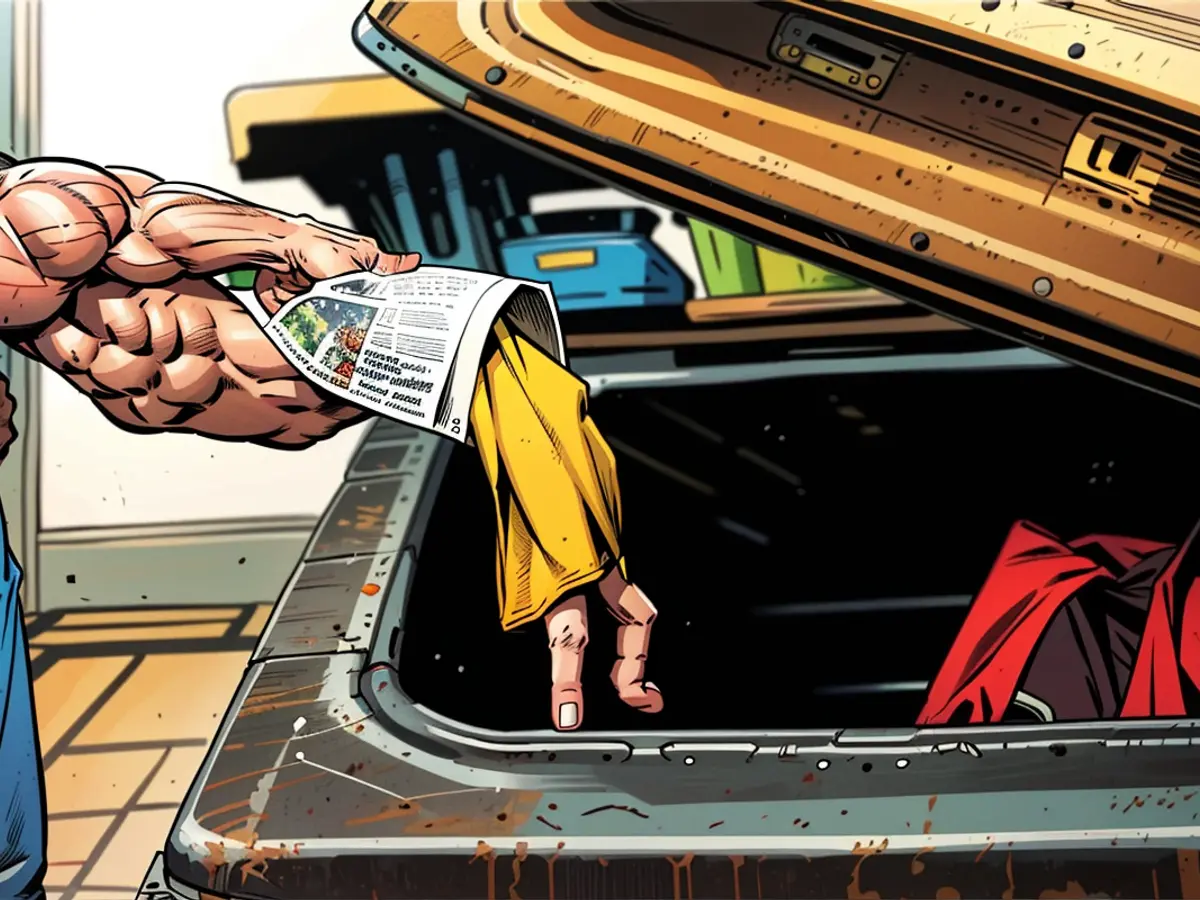Waste balance - The old into the (right) geometric - many errors at the dumpster
People in Baden-Württemberg generate less waste than before - but still choose the wrong bin too often for disposal. Plastics or glass end up in the bio-bin, while a study by the Federal Environmental Office shows that around 50 kilograms of biowaste and 35 kilograms of valuable resources end up in the residual waste bin.
"We're seeing similar developments in the south", said Environmental State Secretary Andre Baumann (Greens) in Stuttgart. "That's wasted energy, wasted resources." The main goal in the circular economy is to halve the amount of biowaste and valuable resources in household waste.
According to the current waste balance for 2023:
Household and residual waste: The average intake of household and residual waste per capita has decreased from 334 kilograms a year in 2002 to a new low of 328 kilograms, as Baumann announced. Less waste was saved from the actual household waste (minus 1.4 kg) than, for example, from paper (minus 4.1 kg).
"People read a lot more on computers than on paper", said Baumann. For comparison: In 2021, the average was 364 kilograms of household and residual waste per capita. In the first Corona year 2020, it was even 369 kilograms due to Corona regulations and home office, short-time work, distance learning, and packaged food from restaurants.
What about biowaste and biogas?
According to the balance, the amount of biowaste per capita remains at around 54 kilograms. The goal of the state is actually 60 kilograms per person and year. The most diligent collectors of potato peels or wilted flower petals live in Baden-Baden (113 kg), the Konstanz district (97 kg), and the Main-Tauber-Kreis (96 kg).
In Baden-Württemberg, more than 73 percent of the biowaste was converted into biogas in the previous year. The state is still far from its goal: It wants to process all biowaste into reusable materials in the future.
The problem is that the supply is still not sufficient from the state's perspective. Municipalities, as well as private operators, need to invest more in biogas plants and modernize them, said Baumann. This would allow more biogas to be produced for climate protection and community heating.
Drought hinders garden growth
The amount of green waste, according to the balance, has not increased. It was at around 88 kilograms per capita nearly 25 years ago, then dropped to 73 kilograms for a while and was finally back at around 83 kilograms. This is roughly the same as the previous year. Baumann cited the prolonged extremely dry weather as one reason for the lower growth in home gardens. "Growth in the home garden was significantly lower."
From next year on, biowaste containers will be inspected more closely - and not emptied if they contain too much plastic or other non-biodegradable material. Stricter scrutiny will also be applied in biogas fermentation plants.
"If there are too many errors, it goes back to the public waste disposal facilities and affects consumers earlier or later", warned Baumann. In the previous year, more than 70 percent of the biowaste was recycled and converted into biogas, as the waste balance for 2023 shows. The previous year, it was 68 percent.
Costs for waste collection are rising again.
The charges for garbage collection have risen for the eighth year in a row and are not directly related to the failure rates. They have increased to 190.27 Euro per year for a four-person household. The value was still at 180.21 Euro the previous year, representing an increase of 5.6%.
"The high rate of price increase from the previous year is now also apparent in garbage collection fees," Baumann stated. However, this increase is still far below the consumer price increases of the past two years, which were 29% higher.
The waste balance does not only consider the waste from private households, but also that from construction and industry. Approximately 9.35 million tonnes of waste were disposed of by the municipalities last year. According to statistics, the intake of residential waste decreased by 1.5% compared to the previous year, while the amount of municipal waste disposed of decreased by 25.8% - according to Baumann, this was due to economic conditions.
- Despite the decrease in overall waste production in Baden-Württemberg, incorrect waste disposal continues to be an issue, leading to biowaste and valuable resources ending up in residual waste bin, like plastics or glass in the bio-bin.
- In Stuttgart, Environmental State Secretary Andre Baumann mentioned that similar waste management challenges are being faced in the southern part of the state, highlighting the need to reduce biowaste and valuable resources in household waste for a more circular economy.
- According to the waste balance for 2023, despite a decrease in the average household and residual waste per capita, less waste was saved from actual household waste compared to materials like paper, which is increasingly being read on computers instead of printed.
- In an effort to improve biowaste management, Baden-Württemberg aims to process all biowaste into reusable materials. To achieve this, municipalities and private operators need to invest more in biogas plants and modernize the existing ones, which would increase biogas production for climate protection and community heating.








